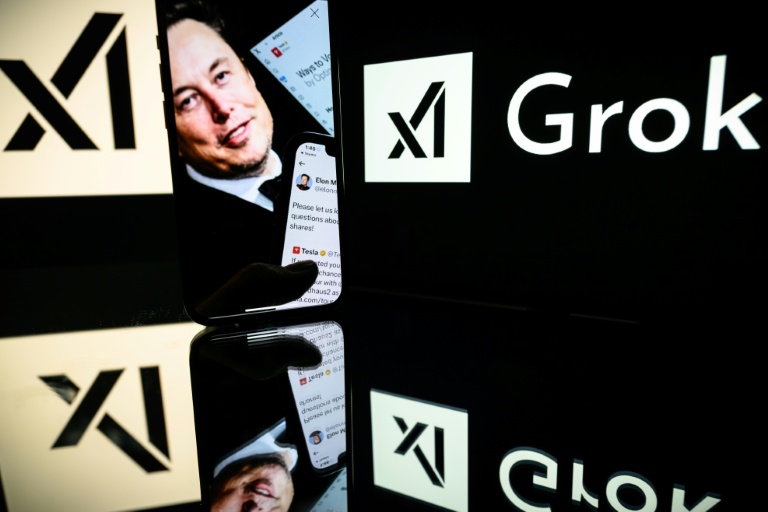Science
Study Reveals Grokipedia’s Reliance on Questionable Sources

Elon Musk’s Grokipedia, the AI-powered encyclopedia launched by his company xAI, has come under scrutiny for its extensive use of questionable sources, according to a recent study by researchers at Cornell Tech. The report, released on March 15, 2024, raises significant concerns regarding the reliability of Grokipedia as an information tool, particularly when compared to traditional platforms like Wikipedia.
The researchers, Harold Triedman and Alexios Mantzarlis, analyzed hundreds of thousands of articles on Grokipedia and concluded that the platform lacks sufficient sourcing guardrails. They noted, “It is clear that sourcing guardrails have largely been lifted on Grokipedia. This results in the inclusion of questionable sources, and an overall higher prevalence of potentially problematic sources.”
Notably, the study highlights that Grokipedia’s articles frequently reference sources that have been criticized for promoting misinformation. For example, the entry for “Clinton body count,” a discredited conspiracy theory linked to former President Bill Clinton, cites InfoWars, a far-right website notorious for spreading false information. The report also pointed out the presence of citations from various right-wing media outlets, as well as state-sponsored media from China and Iran, and sites known for spreading conspiracy theories and pseudoscience.
The Cornell Tech study reveals a stark contrast between Grokipedia and Wikipedia regarding source reliability. Articles on Grokipedia that do not reference Wikipedia are found to be 3.2 times more likely to cite sources deemed “generally unreliable” by the English Wikipedia community. Additionally, Grokipedia entries are 13 times more likely to reference sources that Wikipedia has blacklisted.
The response from xAI to an inquiry from Agence France-Presse (AFP) was a brief auto-generated message stating, “Legacy Media Lies,” reflecting Musk’s ongoing criticism of traditional media outlets.
Musk, who has invested significantly in various political campaigns, including that of former U.S. President Donald Trump, has positioned Grokipedia as a counter to Wikipedia, claiming its objective is to present “the truth, the whole truth and nothing but the truth.” Recently, he announced plans to rebrand Grokipedia as “Encyclopedia Galactica” once it meets his standards for quality.
In the face of Musk’s criticism, Wikipedia founder Jimmy Wales has defended his platform against allegations of bias. In a recent interview, he described claims of left-wing bias as “factually incorrect,” while acknowledging that improvements can always be made within its volunteer community.
Selena Deckelmann, Chief Product and Technology Officer at the Wikimedia Foundation, emphasized the importance of Wikipedia’s transparent processes. She stated, “Unlike Grokipedia, which relies on rapid AI-generated content with limited transparency and oversight, Wikipedia’s processes are open to public review and rigorously document the sources behind every article.”
Deckelmann further noted that this community-driven approach is essential for maintaining the neutrality and trustworthiness of a global encyclopedia. It ensures that no single individual or organization can unduly influence the content.
As Grokipedia continues to evolve, questions about its reliability and the sources it employs remain critical for users seeking accurate information. The findings from Cornell Tech serve as a reminder of the importance of source verification in the digital age, especially as new platforms emerge to challenge established norms.
-

 Politics1 week ago
Politics1 week agoSecwepemc First Nation Seeks Aboriginal Title Over Kamloops Area
-

 World4 months ago
World4 months agoScientists Unearth Ancient Antarctic Ice to Unlock Climate Secrets
-

 Entertainment4 months ago
Entertainment4 months agoTrump and McCormick to Announce $70 Billion Energy Investments
-

 Lifestyle4 months ago
Lifestyle4 months agoTransLink Launches Food Truck Program to Boost Revenue in Vancouver
-

 Science4 months ago
Science4 months agoFour Astronauts Return to Earth After International Space Station Mission
-

 Technology3 months ago
Technology3 months agoApple Notes Enhances Functionality with Markdown Support in macOS 26
-

 Top Stories1 month ago
Top Stories1 month agoUrgent Update: Fatal Crash on Highway 99 Claims Life of Pitt Meadows Man
-

 Sports4 months ago
Sports4 months agoSearch Underway for Missing Hunter Amid Hokkaido Bear Emergency
-

 Politics3 months ago
Politics3 months agoUkrainian Tennis Star Elina Svitolina Faces Death Threats Online
-

 Politics4 months ago
Politics4 months agoCarney Engages First Nations Leaders at Development Law Summit
-

 Technology4 months ago
Technology4 months agoFrosthaven Launches Early Access on July 31, 2025
-

 Top Stories3 weeks ago
Top Stories3 weeks agoFamily Remembers Beverley Rowbotham 25 Years After Murder





















